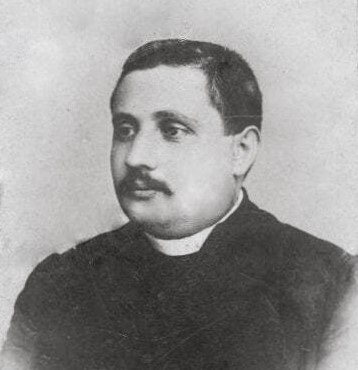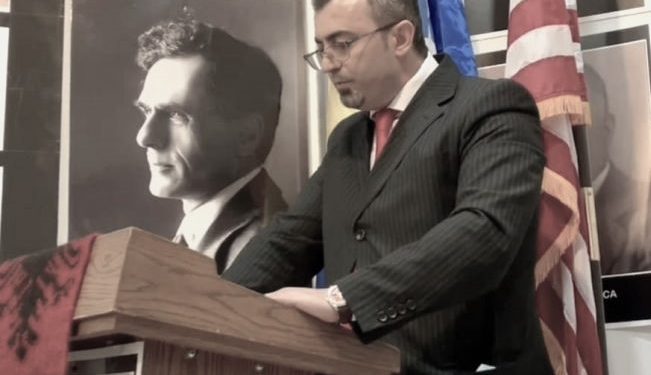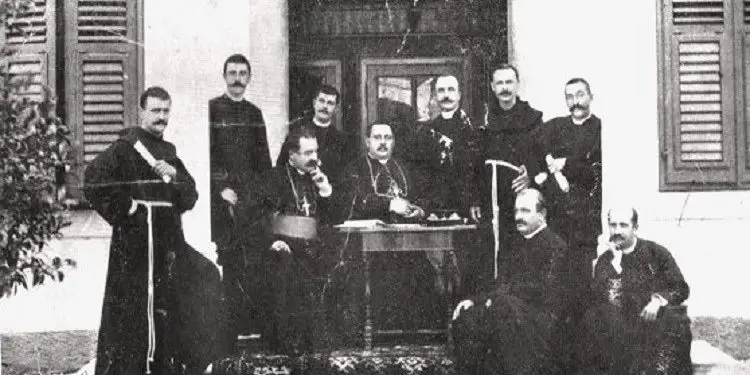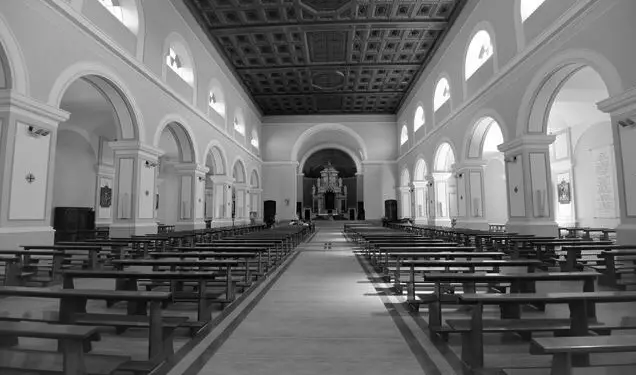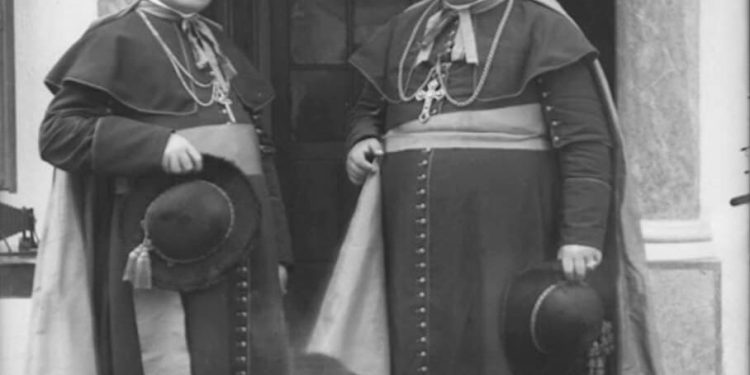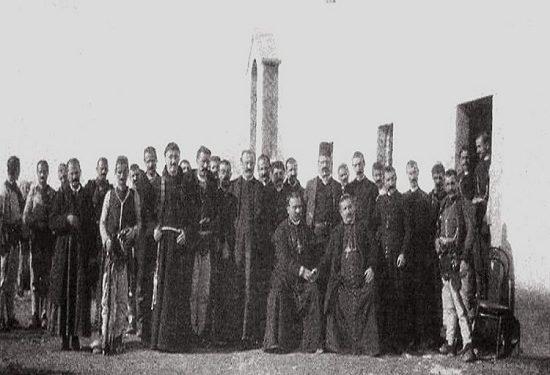By Dr. Pauline Mark
Memorie.al / This paper presents the role of the Catholic clergyman, Monsignor Serreqi in the leadership of the Shkodra Archbishopric and his cooperation with the residents of Shkodra and the surrounding areas, mainly with those of Mbishkodra, due to his origin and the relations of created during the mission as priests in those areas. His relationship with the diplomatic corps was strengthened, after he was placed in charge of the Archdiocese of Shkodra. Monsignor Serreqi cooperated with the highlanders, being by their side whenever they needed advice, drawing up written requests and acting as a mediator with the European offices. The cooperation with the highlanders was not well received by the local authority and caused dissatisfaction at the High Gate, which was set in motion for his removal from the direction of the Archdiocese of Shkodra.
Venerable Jak Serreq was a high personality in the church hierarchy. He served in several different parishes and had a positive impact in the areas where he served as a priest. During his mission, as a messenger of the word of God, he was fully engaged in the Catholic community, to bring as many people of different ages as possible, motivating them to attend Mass regularly, to follow all religious rites, to maintaining the rituals and sacraments of the Catholic religion.
Likewise, during his mission as a priest, he had a great impact on the community, for learning the Albanian language, history and our national culture, since the majority of the population was uneducated. The interest of the Albanian population to be educated in reading and writing was great, but the difficulties were great. The Catholic Church has played an important role in preserving and cultivating the Albanian language.
In addition to the religious cooperation with Catholic believers, he managed to gain sympathy among Albanians of different faiths in Shkodër. The constant injustices and violations of the local and central authorities, guided by the High Gate, added even more to the deep sense of patriotism of Monsignor Serreq.
The appointment by the Vatican, Archbishop-Metropolitan of Shkodra of Monsignor Jak Serreqi on April 13, 1910, was welcomed by the Catholic community and his positions were further strengthened with diplomatic authorities and local government, being a stronger voice in defense of the demands of the highlanders. The constant relations he had with the Holy See helped him to strengthen his religious and diplomatic leadership positions, being a powerful voice in defense of the Albanian cause.
The population of Shkodra, as well as the surrounding provinces, had expressed support since he was appointed head of the Archdiocese of Shkodra. The highlanders express their readiness for cooperation and asked for mediation by the local authorities in Shkodër and the diplomatic ones. In telegram number 35, dated February 13, 1912, the Italian diplomat informed the Ministry of Foreign Affairs of Italy about the situation in the north of Albania.
Among other things, the document mentions that “Mr. Serreqi turns out to have an extraordinary influence on all tribes, including Muslim ones”. Monsignor Serreqi’s cooperation with various heads of tribes in the North of Albania was continuous. He constantly consulted with them and several times was the author of drafting memoranda, in defense of the interests of the Albanians. Monsignor Serreqi was a mediator, to present the concerns of the highlanders and foreign diplomats.
In this way, he was made aware of all the problems that worried the Albanians. The gathering of 200 mountaineers in the Cathedral of Shkodra, worried local authorities and was followed with interest by the Italian diplomat in Tivar, Panella. The report states:
“On February 9, about 1,000 highlanders, most of them from the tribes of Shala, Gruda, Dukagjin, Kastrati, Kelmendi and some other tribes from Puka, went to Shkodër, led by their chiefs, to ask General- the governor (at the moment Shkodra does not have an incumbent, vali), full compensation for the damages caused by the Turkish army, last year. So they asked the governor, through Archbishop Serreqi, to give them an answer within 24 hours”.
In the content of the document, it is said that during the mass celebrated by Monsignor Serreqi, they had sworn for the re-establishment of Albania, as the situation could no longer endure and that their problems had to be solved as soon as possible. Monsignor Serreqi, encouraged those present to write a memorandum and undertook to present it to the Great Powers. Also, at the end of the report, it is stated that when the meeting with Monsignor Serreq took place, some Muslim supporters participated.
Monsignor Serreqi had constant communications and informed his superiors in the Vatican about the situation created in Shkodër and beyond in other Albanian cities. He was required to maintain the position of the clergy and play a conciliatory role between the Albanian population and the authorities. Monsignor Serreqi had influence and his word was heard, mainly in the tribes above Shkodra.
This happened because of his origin, from the Highlands of Mbishkodra, as well as because he had served several years as a priest in different areas of the Highlands. In another diplomatic document, for the Ministry of Foreign Affairs of Italy, which is classified as reserved, it appears that Monsignor Serreqi was invited to the Holy See, following the situation in the country and due to the implementation of the reforms of the Turkish government. through the famous “commission of reforms”.
His activity in continuous support of the Albanians did not pass under the shadow and was seen as incompatible with the policies of Istanbul. Referring to the Italian documents, it is evident that official Istanbul made every possible attempt to remove Monsignor Serreq from the direction of the Shkodra Archbishopric. I quote:
“It is believed that the Ottoman government is putting a lot of pressure to remove from Shkodra the above-mentioned cleric, who has the support of the Austrian government, although it does not look favorably on him, as he is suspected of having pro-Italian feelings. Monsignor Serreqi, has been helped a lot and continues to be helped by the National Association of Missionaries. There were also meetings with Albanian political leaders”.
Monsignor Serreqi was considered by Albanian politicians as a man who could have influence in the neighboring country, Italy. Esat Pasha Toptani had gone to Shkodra for two main purposes, firstly, to talk with Prince Preng Bibë Doda and secondly, to meet Monsignor Serreq, Bishop of Shkodra. He did not manage to meet with the first one, as he did not go to his meeting, while with Mr. Serreq, he had a long conversation complaining about the lack of help from Italy.
The document states that the meeting between Esat Pashe Toptani and Monsignor Serreqi took place in Shkodër, where he asked him to intervene in the neighboring country and help the Albanian people. Monsignor Serreqi served as a senior cleric and a great patriot. His cooperation with the highlanders and the contacts he established with the West was a great help in the service of the Albanian cause. Venerable Jak Serreqi was inspired by deep national feelings. Memorie.al




